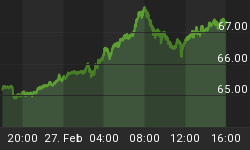Bitcoin may be the biggest threat to big finance that the industry has ever seen. And while some have outright shunned the cryptocurrency, some banks are trying to emphasize the underlying technology: blockchain.
Blockchain Consortiums
At the center of the blockchain boom in banking is the R3 Consortium. R3 started in a family office, led by David Rutter, the company’s founder and CEO. Since its inception in 2014, the consortium has been joined by a number of the world’s top banks, regulators, trade associations and technology companies, with over 100 members in total. In addition to its considerable list of members, the consortium is also partnered with the likes of Microsoft, Intel, HP and InfoSys.
The R3 Consortium’s ambitious task is to completely overhaul the world’s financial services, reducing costs and increasing efficiency using Corda, the company’s open source blockchain-inspired distributed ledger technology. Rutter noted: “Our open, collaborative community gives companies complete freedom to develop innovative solutions to their customers’ specific challenges.”
R3 still technically lacks a finished product, and is currently only an open source, moldable solution to its members’ unique needs. However, one of the biggest challengers in the space, Ripple, has created a reference client that connects to the “Ripple transaction protocol” which is built on a distributed open source internet protocol, consensus ledger and cryptocurrency (XRP).
Ripple switched its focus to the world’s banking system in 2014, and since, its transaction protocol has been adopted by several banking majors such as Santander, the Royal Bank of Canada and Fidor Bank. Additionally, Ripple launched its own consortium of Japanese banks, and as of July 2017, over 80 percent of Japan’s total banking assets are participating in the payment and settlement experiment.
Ripple’s platform allows cross-currency transactions of any value with minimal fees and a 3 to 5 second wait time. Because of its liquid currency and fast transactions, Ripple has become an arbitrage service for currency traders, as well, with the potential to revolutionize trading desks.
Central Banking
While Ripple and R3 are making waves in the private banking sector, a study by Cambridge Centre for Alternative Finance has found that within the next two years, over 20 percent of banks plan to integrate blockchain technology into their operations. Additionally, over 40 percent suggest that the tech will be implemented within the decade.
The reasons for the implementation of blockchain tech vary throughout the banks polled. But overwhelmingly, central banks are looking to create their own digital currencies according to the study. Other options for the technology include payments/remittances, regulatory compliance and management of records.
The most ambitious central banking system in the blockchain race, however, has to be the Dubai’s Emirates NBD with its partnership with India’s ICICI. As part of the country’s huge blockchain initiative, Emirates NBD is creating a blockchain framework to facilitate all of the banks’ transactions and inter-currency remittances, with its first step – Cheque Chain – launched in May 2017. Dubai has also introduced its own currency, emCash, allowing residents to make everyday purchases utilizing blockchain technology.
Banking and Bitcoin
While most of the world’s banks are more fascinated with blockchain tech than bitcoin, South Korea’s second largest bank is looking for bitcoin solutions in their day to day operations.
Shinhan Bank is looking to create a vault and wallet for bitcoin users, integrated into their current banking services. The bank announced that: “Shinhan is testing a virtual bitcoin vault platform wherein the private keys of bitcoin addresses and wallets are managed and issued by the bank. The bank intends to provide the vault service for free and charge a fee for withdrawals.”
This comes following a statement from Choe Heung-sik, the chief of South Korea’s Financial Supervisory Service indicating that the country will not impose strict regulations on bitcoin.
The implications of Shinhan’s bitcoin services could be far reaching. The project is set to be ready for the public in mid-2018 which would expose the bank’s millions of users to a whole new way to interact with the cryptocurrency, and could create a new wave of adoption that could likely spread well beyond South Korea.
It’s clear that the blockchain race is in full swing, marking an evolutionary moment in global finance. Soon, the days of slow bank transfers and red tape will be gone, replaced by a new platform for global trade opportunity and currency exchange taking its place.
By Michael Kern via Crypto Insider















